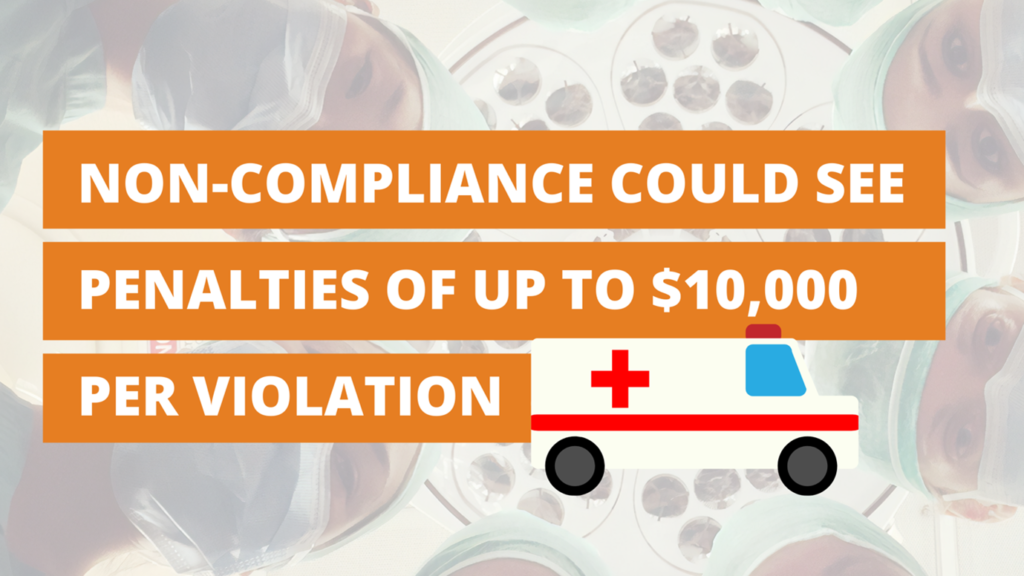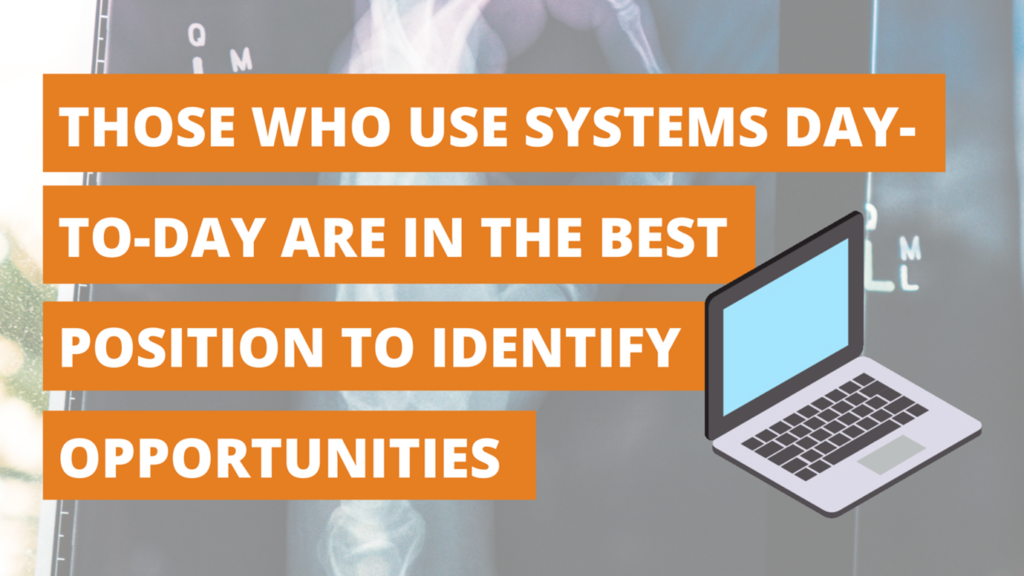The No Surprises Act – What is it and How Can You Be Prepared?
What is the No Surprises Act?
The No Surprises Act, in its most basic form, is federal protection for those with either individual or group healthcare plans. It is designed to protect them from surprise medical bills when using emergency services (and some non-emergency services.)
The Journal of the American Medical Association reported that as many as one in every five insured adults had received surprise medical bills in the last 24 months. With this statistic in mind, it’s no real surprise that the industry has had further legislative additions to help protect patients and better control surprise billing from the healthcare system.
Most surprise bills are linked to the unauthorised (or unknowing) use of out-of-network services for treatments and the No Surprises Act aims to cap prices of those essential services to match in-network cost-sharing prices. This is of great benefit to insured patients who previously may have experienced a lack of transparency in the costs of the treatments they were receiving and whether the providers of that treatment were in or out of network.
The Key Features of the No Surprises Act:
- The act ensures that patients do not receive surprise medical bills when seeking emergency services or treatments from certain providers from outside of the network at in-network treatment facilities.
- Healthcare (and healthcare plan) providers will be required to aid patients in accessing accurate information on the costs of the healthcare that they receive.
- The act allows insurance companies to negotiate financial reimbursement separately, with independent resolution processes included in this.
A Detailed Look at the No Surprises Act
The No Surprises Act makes it illegal for providers to present patients with bills exceeding the in-network cost-sharing price in cases where the patient did not knowingly choose to use a service from a provider outside of the network.
On top of this, some non-emergency out-of-network support services including radiology, pathology, anesthesiology, neonatology and any required lab services may not be billed above the in-network cost-sharing amount regardless of whether or not the patient received notice or consented to the service.
The out-of-network provider is not able to not use the consent of a patient to charge above the given rate if there is no in-house option available. In simple terms, if a patient requires the services of an external service and there are no internal alternatives, the out-of-network partner should be treated as if they were in-network when it comes to billing the patient.
There are a few exceptions to the billing that waive the rights of patients if they give prior written consent and subsequently bypass their protections from this Act to use out-of-network providers. Providers legally are never permitted to request that patients waive their rights for either emergency or non-emergency services. All consent must be obtained voluntarily and without any coercion from the provider, although they do reserve the right to refuse care if consent is not provided.
There are of course, a few exceptions here where notice and consent waivers are not permitted, and these are important to distinguish and include:
- Emergency services
- Surprising urgent medical needs that are consequences of non-emergent care
- Secondary or diagnostic services including radiology, pathology, etc.
Who does the No Surprises Act Apply to?
The No Surprises act applies to, and will impact, many different areas of the healthcare system, including but not limited to:
Emergency Services: Including emergency rooms, standalone emergency departments or any other care centres licensed to provide emergency care to patients.
Medical Stabilization Services: The definition of emergency services in this case also includes any stabilization services required post-emergency. This is classified as care required up to a point where a patient is stable enough to travel to another in-network facility using non-medical transportation.
Non-Emergency Services Essential to Care: Any out-of-network services essential to care that are acting in place of absent in-network services.
The responsibility of adhering to the guidance and ensuring patients aren’t exposed to surprise bills falls to both providers and health plans. It is their role to identify bills protected under the legislation, which is why a solid understanding within facilities and external parties is incredibly important if providers hope to avoid the $10,000 fine if they are found to have breached the ruling.
When Did The No Surprises Act Take Effect?
The No Surprises Act took effect on January 1st 2022.
Patients will notice an increased transparency within the wider healthcare system. The most visible change for patients is that care providers and insurers are now required to provide patients with improved good-faith billing and pricing estimates to help them understand and decide how they would like to proceed.
Providers will need to be cautious to ensure that all relevant parties understand the legislation and are able to easily make any adjustments to operations in order to successfully adhere to the ruling. This will specifically impact IT teams and those involved in admin and billing to ensure that systems are working in the correct ways so as to avoid any costly errors.
How Can Companies Prepare for The No Surprises Act?
When important large scale changes are introduced, it is common to see those responsible turn to trustworthy external companies like i3solutions to help them see a clearer overview of how to ensure compliance and help create any custom software or industry specific tools without causing disruption.
Understanding and Assessing
With the responsibility falling on providers, it’s immensely important that steps are being taken to ensure that those in the position to make important decisions are well-informed and prepared to make changes that support the new legislation and avoid some of those hefty fines that come with lack of compliance.
Once key stakeholders have a good understanding of the regulations and have taken time to look at the fine print, it is a good idea to work out how much additional time manually conducting compliance tasks will take and identify any opportunities to streamline the processes using technology. Sometimes this can be difficult to identify, and speaking to a consultant or external party with expertise in workflow automation can help.
Some of the best stakeholders to identify opportunities for improvement to systems are those that use them every day. They will be much better equipped to identify areas where the business could benefit from custom development solutions that will save a provider both time and other resources.
Preparing your Systems for the No Surprises Act
Automation is a brilliant tool. It can take away repetitive manual input and create a more streamlined and efficient system. Automated systems can help to link vital data and information and help both insurers and patients more easily access information. Automation, does, of course have its limitations, but, if it has access to the same data and information as humans, then it can often reach the same outcomes in much less time with far greater accuracy.
Digital transformation is key for ambitious businesses who want to provide high-quality care services, improve their processes and ensure care delivery and post care administration is as efficient as it possibly can be.
i3solutions Can Help you to be Prepared
If you need help with custom software or IT solutions that allow your business to seamlessly integrate new processes and comply with these new regulations, then we have just the solution for you. For over 25 years, i3solutions has helped businesses craft unique solutions to technical problems, and we have the knowhow to help you prepare for compliance in any form.
Leave a Comment





